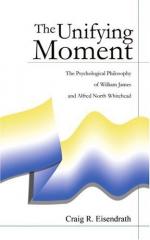|
This section contains 4,138 words (approx. 14 pages at 300 words per page) |

|
SOURCE: “Evil and Unlimited Power,” in The Review of Metaphysics, Vol. XX, No. 2, December, 1966, pp. 278-89.
In the following essay, Madden and Hare point out internal contradictions in Whitehead's conception of God.
The classical problem of evil arises because God's unlimited power and goodness, on the one hand, and the existence of apparently gratuitous evil, on the other, seem to be incompatible. In this statement of the problem, the notion of “gratuitous” is important. The critic of theism, after all, is not simply lamenting the fact that the world is not perfect. He admits that some evil serves good ends. He insists, however, that some evil resists explanation, is apparently gratuitous, and hence constitutes a serious problem for the Christian.
There are a number of possible strategies open to one in meeting this problem. He can try to show that God's unlimited power and goodness are, in fact...
|
This section contains 4,138 words (approx. 14 pages at 300 words per page) |

|


